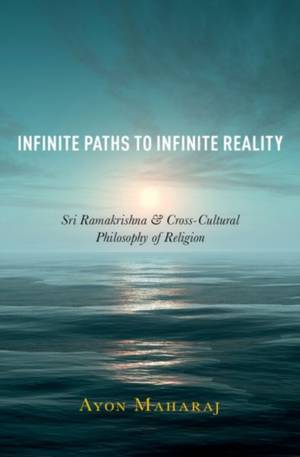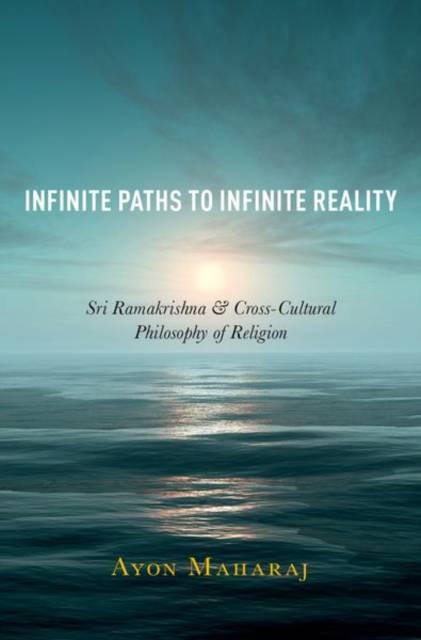
En raison d'une grêve chez bpost, votre commande pourrait être retardée. Vous avez besoin d’un livre rapidement ? Nos magasins vous accueillent à bras ouverts !
- Retrait gratuit dans votre magasin Club
- 7.000.000 titres dans notre catalogue
- Payer en toute sécurité
- Toujours un magasin près de chez vous
En raison de la grêve chez bpost, votre commande pourrait être retardée. Vous avez besoin d’un livre rapidement ? Nos magasins vous accueillent à bras ouverts !
- Retrait gratuit dans votre magasin Club
- 7.000.0000 titres dans notre catalogue
- Payer en toute sécurité
- Toujours un magasin près de chez vous
Infinite Paths to Infinite Reality
Sri Ramakrishna and Cross-Cultural Philosophy of Religion
Ayon Maharaj
Livre relié | Anglais
103,95 €
+ 207 points
Description
Sri Ramakrishna is widely known as a nineteenth-century Indian mystic who affirmed the harmony of all religions on the basis of his richly varied spiritual experiences and eclectic religious practices, both Hindu and non-Hindu. In Infinite Paths to Infinite Reality, Ayon Maharaj argues that Sri Ramakrishna was also a sophisticated philosopher of great contemporary relevance. Through a careful study of Sri Ramakrishna's recorded oral teachings in the original Bengali, Maharaj reconstructs his philosophical positions and analyzes them from a cross-cultural perspective. Sri Ramakrishna's spiritual journey culminated in the exalted state of "vij�ana, " his term for the "intimate knowledge" of God as the Infinite Reality that is both personal and impersonal, with and without form, immanent in the universe and beyond it. This expansive spiritual standpoint of vij�ana, Maharaj contends, opens up a new paradigm for addressing central issues in cross-cultural philosophy of religion, including divine infinitude, religious pluralism, mystical experience, and the problem of evil. Sri Ramakrishna's vij�ana-based religious pluralism--when grasped in all its subtlety--proves to have major philosophical advantages over dominant Western models. Moreover, his mystical testimony and teachings not only cut across long-standing debates about the nature of mystical experience but also bolster recent defenses of its epistemic value. Maharaj further demonstrates that Sri Ramakrishna's unique response to the problem of evil resonates strongly with Western "soul-making" theodicies and contemporary theories of skeptical theism. A pioneering interdisciplinary study of one of India's most important philosopher-mystics, Maharaj's book is essential reading for scholars and students in philosophy of religion, theology, religious studies, and Hindu studies.
Spécifications
Parties prenantes
- Auteur(s) :
- Editeur:
Contenu
- Nombre de pages :
- 370
- Langue:
- Anglais
Caractéristiques
- EAN:
- 9780190868239
- Date de parution :
- 08-11-18
- Format:
- Livre relié
- Format numérique:
- Genaaid
- Dimensions :
- 160 mm x 236 mm
- Poids :
- 639 g

Les avis
Nous publions uniquement les avis qui respectent les conditions requises. Consultez nos conditions pour les avis.






